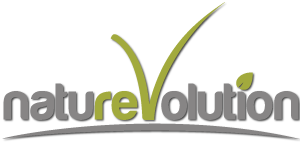At the end of April, the Naturevolution team, along with 6 eco-volunteers and their local partners, met on the island of Sulawesi – you know, the starfish-shaped island to the right of Borneo🤔 – to lay the foundations for an ambitious project. The Konawe Plastic Project aims to reduce ocean pollution from plastic waste in a sublime corner of paradise that lacks a waste management system. Extracts.

The mission really only begins once on the water. In the fishing boat that will be our means of transport for the next ten days, the waters of the great bay of Matarape flow under the brightness of the moon. First awareness of the size of the place: from the village of Molawe to the south, it takes 3 hours by boat to reach Kokoh Island where we set up the first camp. About fifty kilometers dotted with karstic islets of all sizes. Most are uninhabited: in the whole area, there are only about ten villages, built on stilts above the water rather than on the rock. Some islands, such as Kokoh Island, are home to only one family.
The next day, after waking up under the coconut trees, we head to Sombori Island to clean up a first beach. Some of them set off to reconnoiter the reef, while the bulk of the team combed the beach with a fine comb to collect all the waste.. In the early afternoon, after the operation is complete, the team takes shelter from the sun for lunch on the boat, before spending the rest of the afternoon diving on the reef that surrounds the island.

Plastic waste in the oceans is finally making the headlines around the world, and it’s about time! With 8 million tons of plastic being dumped into the sea every day, waste will outweigh fish by 2050 if nothing is done by then. And in the splendid bay of Matarape, not far from the Matarombeo massif, where Naturevolution is already conducting scientific expeditions and conservation efforts, the waste is all too visible – both on the beaches, on the water and underwater.
It must be said that Indonesia is the second largest contributor of plastic to the ocean. Except here the sea is a biodiversity hotspot located in the heart of the Coral Triangle … A good reason to act quickly and efficiently! Action means conducting clean-up and awareness-raising activities with local communities, while establishing a waste management system at the Bay-wide level and even in Sulawesi Tenggara Province. These actions are part of our broader programme to preserve the Konawe karsts.

Did you say karst? The islets of Matarape Bay constitute the marine extension of the geological formation of the Matarombeo massif located inland. A karstic complex (mainly limestone) which, eroded by the sea and rain, gives rise to a spectacular relief. Little visited by tourists, Matarape Bay has been nicknamed the “mini Raja Ampat” because of its resemblance to this now unmissable site. In short, a splendid site!
But who said anything about a holiday? The days were punctuated by the imperatives of the projects and the mission.
Run out of a typical day:
- Rise around 6:30 am with the sun
- Departure by boat to the target island
- Installation of the Reef Check protocol on the reef by divers – story about coral tracking.
- Waste collection on the island’s beaches
- Waste sorting following the Initiatives Océanes protocol
- Snorkeling, realization of underwater images and follow-up Reef Check
- Return to camp for a moment of exchange
- Before leaving in the evening for an awareness presentation in a nearby village!
- The night is very restorative ;)

On one of the smaller beaches where we did an exhaustive sorting of the collected waste, the waste was distributed as follows:
- 787 cigarette butts – 118 cigarette packs
- 82 plastic bottle caps
- 103 bottles < 50cl / 10 bottles > 50cl
- 71 plastic cups or 1,5kg
- 13kg plastic bags and plastic bag fragments
- 8kg snacking/aluminized plastic
- 2. 6kg of polystyrene divided into 230 fragments
- 8,1kg fisheries-related waste (intertwined lines/strings)
- 10kg tarpaulin
- 21 clothes, tea towels for a weight of 4kg
=> Total : 70kg of waste for a single 50m long beach !
In the end, over the entire mission, we collected nearly ONE TON of waste, which was sent to the provincial capital, Kendari.
A few words about… Initiatives Océanes : Initiatives Océanes are clean-ups of beaches, lakes, rivers and seabed all over the world. These waste collections are organised by volunteers and supported by the Surfrider Foundation. Naturevolution has decided to join this network of stakeholders that follows a single protocol for the inventory of collected waste, so that the data can be used by decision makers and the general public.

Thanks to our partners who joined the launch of the Konawe Plastic Project: Nomade Aventure, adventure travel agency, and Ector – recycled plastic sneakers.
Continue to the 2nd article of the mission: Preserve the coral reefs of the Coral Triangle.
If you would like to venture into this beautiful area and work for its preservation, you have the opportunity to join one of our eco-volunteering missions in Indonesia.
Here -> for the 2018 mission programme.

